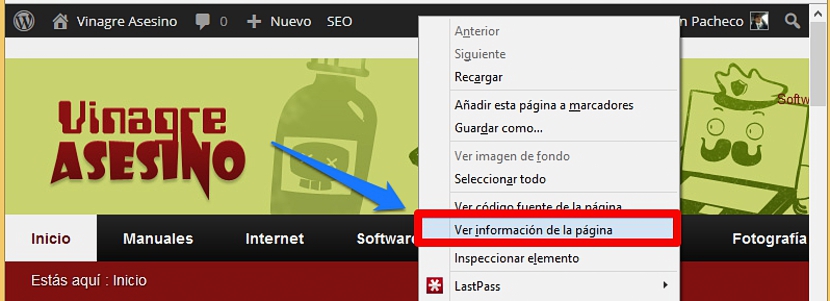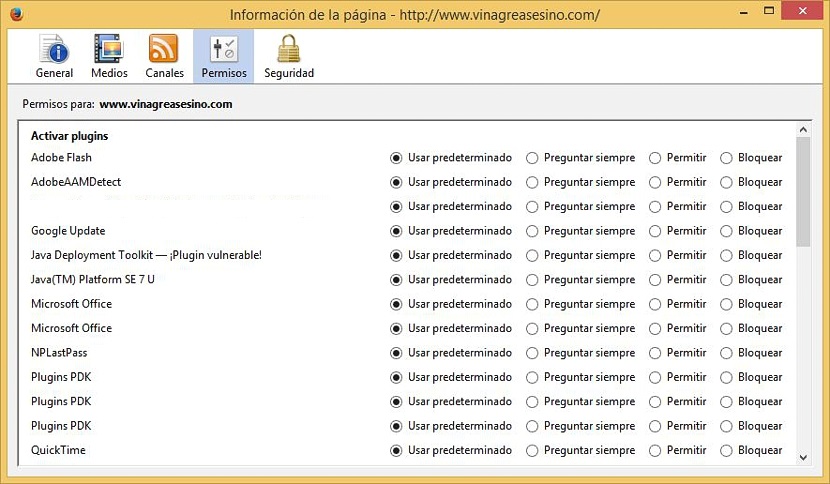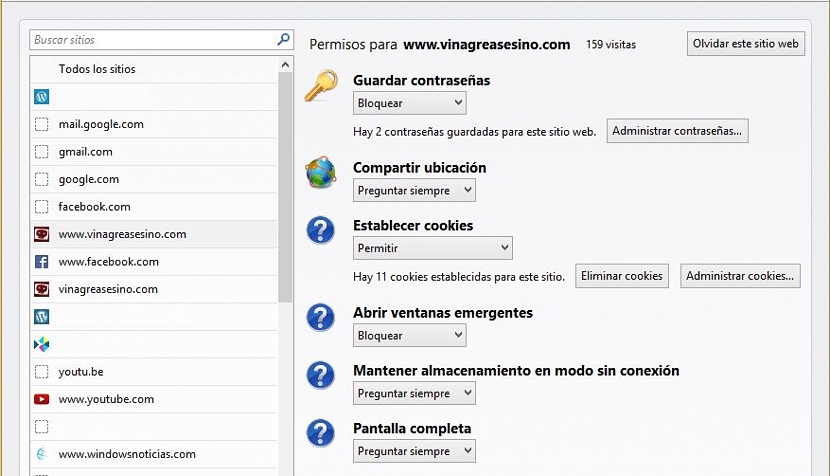
With what we will teach in this article we may come to understand, the way some security systems work, something that is generally integrated into certain antivirus. For example, him Parental Control it may even block certain web pages based on a few parameters that the application needs to define. If we use Mozilla Firefox, this same operation could be carried out without the intervention of an antivirus.
While it is true that antivirus security systems can block web pages that refer to pornography, social networks, online games and a few other environments, there may also be other sites on the net that perhaps we do not want others (and also us) to be able to navigate. Through a series of easy-to-follow steps, below we will indicate how this task can be carried out in Mozilla Firefox.
Reviewing the permissions granted to plugins in Mozilla Firefox
The first thing we are going to do in this first part of the tutorial is to know what are the permissions we have granted to the plugins that have been installed in the Mozilla Firefox browser; To do this, we only have to follow the following steps:
- We open the Mozilla Firefox browser (regardless of whether we already have the most recent update with the new or old interface).
- We go to any existing web page on the Internet.
- We click with the right button of our mouse in any space on the screen.
- From the contextual menu we choose the option «View Page Information«.
- We turn to the option of «Permissions«.
With these steps that we have suggested, a new window will open where we have the opportunity to review which are the permissions that have been granted to the plugins installed in the Firefox browser. Right here we could get to modify these preferences, although for this we must have a little knowledge about how these plugins act when they are connected to the network.
Block web pages in a custom way in Firefox
Well, what we mentioned above we will do now; for this we only suggest the following:
- Open the Mozilla Firefox browser.
- In the URL space write the following:
about: permissions
A new window will appear immediately, in which two work areas will be fully identified; to the left are a large number of web pages through which we may have navigated, although in the blank space at the top of that area, we could place any other web page that we want to find it more easily.
On the right side, on the other hand, there are other options that can be used to administer these sites. For example, if we select a website on the left side (which may well be vinagreasesino.com as an example and demonstration), towards the right side we will have the possibility to perform a few tasks within the Firefox browser:
- Save passwords.
- Shared location.
- Set cookies.
- Open pop-up windows.
- Keep storage in offline mode.
- Fullscreen.
Each of the options that we have listed above has an additional button, which will allow us to: «always block, allow, ask » Primarily, it is we as users who must define the type of situation to be carried out with this web page that we have placed as an example.
Undoubtedly, this is a very interesting region to investigate, since there is a large amount of information that can be very useful for those who want to monitor the activity that is being carried out on a specific computer, and in the Firefox browser. For example, at the top (above the Save Passwords option) a very interesting piece of information appears, because there the number of times this web page has been visited is displayed.
From a few steps that we have suggested (each one of them very easy to follow) we have been able to find interesting features that will surely help us when it comes to strengthening security and browsing in Firefox and on the computer in general.


